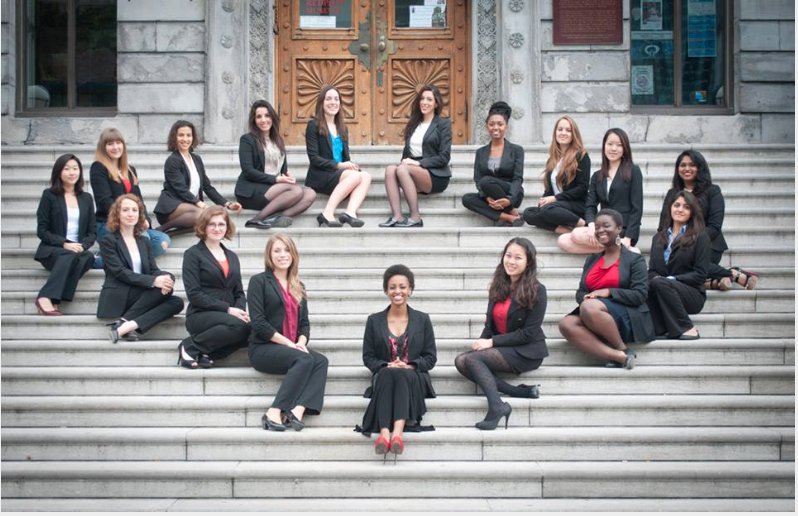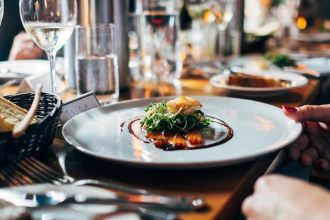
Walking across campus, it would be hard to believe that just a little over a century ago, half of the faces walking by you would be gone–or, to be more specific–replaced by men. Yet it’s a harsh truth that as a product of its times, McGill did not accept female students. The university did not admit women until 1884, when benefactor Donald A. Smith donated a generous $120,000 to the school on the condition that it be used to provide equal opportunities to women. The women who benefited from his actions were aptly nicknamed “Donaldas” for decades onwards, and would become the first of hundreds of thousands of women to pass through the university in the many years to come.
Despite this, it would still be over two decades before McGill honoured its first female PhD, thirty-five years before women broke into intercollegiate sports, and another half century before Maude Abbott would become the first female accepted into the Faculty Club.
Fortunately, the picture is much different today. Leadership and empowerment organizations have sprung up in almost every faculty to provide women with the opportunity to voice their interests, develop their skills, and network with professionals in their chosen field. McGill women looking for empowerment need not look further than the SSMU-run McGill Women in Leadership, which facilitates speaker presentations to educate interested students on work-life balance, maintains an active social media presence by sharing articles pertaining to feminism and women around the world, and posts a regular “Wonderful Woman of the Week” to bolster positive female role models in the public eye.
Similarly, students in engineering have ample leadership and networking opportunities through POWE (Promoting Opportunities for Women in Engineering), while those in management can find their interests represented within Desautels Women in Business.
In the more artistic fields, male and female feminists alike can turn to The F Word, a recently instated publication seeking to answer the question “what does feminism mean to you?” through submissions of all mediums by McGill’s very own artists, poets, and writers. Similarly, the faculty of Women’s Studies publishes an annual interdisciplinary journal known as Intersections which seeks to educate and foster discussion between students on difference, oppression and identity.
Those seeking a more visual and physical approach, meanwhile, can find their niche with Booby Trap, McGill’s all-female comedy sketch troupe.
In the Faculty of Arts, female students interested in political science and the Canadian government can obtain the unique experience of shadowing female MPs and senators through the McGill Women in House program. Carly Walter, VP External of the Political Science Student Association, shared this experience with 37 other female students this past year.
“It was an incredible trip. We really got to see behind the scenes of what it was like to be an MP or senator, and ask them questions specific to what it was like being a woman in politics,” Walter explained. While the club, which has been running for over a decade, finds its main mandate in facilitating the trip – which is largely funded through SSMU, AUS and other committee subsidizations – it is also responsible for on-campus events pertaining to women in politics, such as the Yes She Can academic panel put on in partnership with the PSSA to facilitate discussion on the role of women in Canadian government.
For Walter and many others, it is seen as an opportunity to seek allies in the fight to increase the presence of women in the House of Commons. “The representation [of women in the House] right now is 24.6%, which is obviously not representative of the 51% of women in Canada. I think the good thing about having events on campus is that they can include men. It’s important to have men – and people who won’t be selected to go on the trip – in the dialogue on women’s participation.”
It’s a sentiment that Claire Reierson, VP Communications of POWE shares. While the organization has experienced success in expanding it’s doors to a greater number of female members, getting their male counterparts on board has been slightly more difficult.
“I think a lot of people are skeptical at first about our club because they don’t really know what we do, so as far as support from the students goes, I’m not sure how much we get,” she notes. “Feminism sometimes has a bad connotation to it, and I think that’s what people see us as sometimes, so this semester we’re really trying to change that. We’re trying to get a more diverse group of people coming to our meetings. We’d like to have more guys; that’s one of our bigger difficulties.”
It’s ironic given the typical gender breakdown of engineering classes, where male students almost always seem to be in the majority (McGill’s Fall 2013 Enrolment report listed an official 24.9% to 75.1% female-to-male divide, the lowest of any faculty at the university). This very gender gap is what influenced the creation of POWE and many of its programs, particularly Conference, where grade 10, 11 and CEGEP students are presented with the idea of engineering as a potential career field.
“A lot of girls don’t know what engineering is about,” explained Reierson, “and they’ve never had people telling them they should go into engineering.”
McGill’s various clubs still have work to do in expanding their profile and increasing women’s representation in their respective fields. Yet we are far from the bleak image of McGill over a century ago, when women were placed in separate classrooms – and even earlier, when they were banned from attending the university altogether.
Nowadays, organizations like McGill Women in Leadership boast a healthy 712 likes on Facebook, while Desautels Women in Business enjoys interaction with over 250 interested club members. Publications like Intersections and The F Word exist to give feminists, both male and female, the opportunity to discuss pertinent issues relating to life at McGill and around the world. Booby Trap comediennes on campus work actively to dispel the myth that women “just aren’t funny.” And organizations like the McGill MBA Women’s Association and the McGill Women’s Alumnae Association ensure that networking and career-building opportunities are present well past a student’s graduation.
For Reierson, it’s a remedy to the age old problem that has led many girls to struggle between a work-life balance. “The image that women think they need to meet is one of the biggest challenges we have. I think that women think they need to please society, and so they don’t do enough for themselves. Instead, they should focus more on making themselves the best they can be intellectually.”







